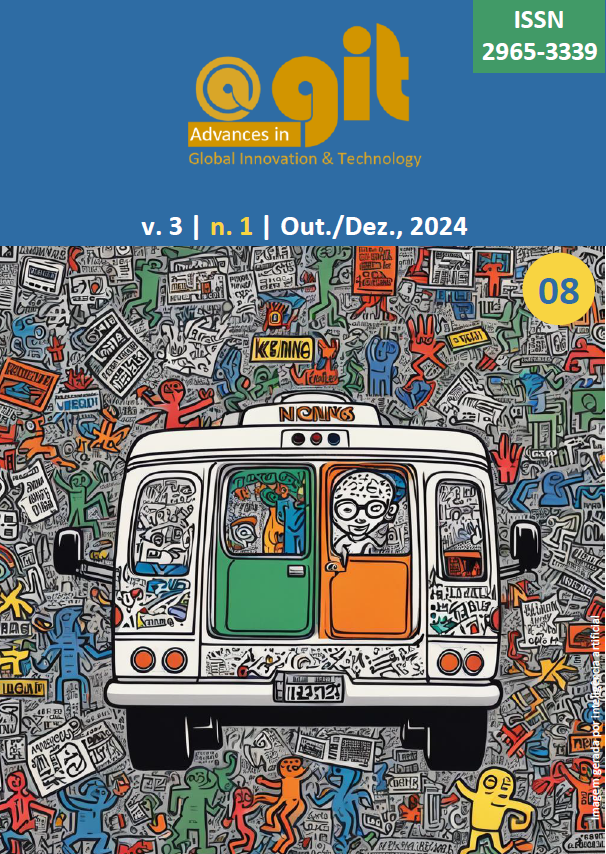From Circuit to Market
Assessing the Sustainability of Formula E and Its Impact in Brazil
DOI:
https://doi.org/10.29327/2384439.3.1-4Keywords:
Formula E, motorsport, electric motors, innovation, sustainability, popularityAbstract
The demand for urban mobility continues to increase and the changing landscape has profound repercussions on a wide range of issues, such as health, safety, water, transport and energy consumption. For this reason, to achieve sustainable urbanization, cities must generate better employment opportunities, expand the necessary infrastructure, ensure equal access to services, preserve natural resources within the city and surrounding areas. In this context, even in motorsport (particularly in the FIA), future trends are beginning to orient towards sustainability issues and there is a growing interest in assessing the sustainability profile of racing vehicles. Environmental protection and eco-mobility represent the main challenge facing Formula E, offering electric vehicles (EVs) designed to combine technology, innovation and sustainability, as well as enable the transition to low-carbon smart cities in the near future. To date, sustainability issues in Formula E have been dealt with exclusively at system level (i.e. logistics and management, travel, infrastructure and so on), but there are no component-level studies. Technological development related to the field of racing performance also has the potential to drive innovation, thereby supporting the continuous improvement of the electric powertrain in terms of efficiency, performance, and optimized use of materials such as rare earths for electric motors and active materials for batteries. The objective of the paper is the development and implementation of a customized methodological approach to assess the environmental impacts of the entire Life Cycle (CV) of a Formula E electric motor. At the same time, the results provide useful indications to improve product development from the perspective of ecodesign and ensure the transfer of technology from high-performance racing cars to commercial vehicles.
Downloads
References
ABNT (2024) (Associação Brasileira de Normas Técnicas) Associação Brasileira de Normas Técnicas (ABNT) > Acesso em 04 março de 2024.
Comparativo: carro de Fórmula 1 x Fórmula E. Disponível em: Acesso em 04 março de 2024.
Del Pero F, Berzi L, Antonia Dattilo C, Delogu M. Environmental sustainability analysis of Formula-E electric motor. Proceedings of the Institution of Mechanical Engineers, Part D: Journal of Automobile Engineering. 2021.
F1 São Paulo. (2024) Recorde e impacto de R$ 1,64 bi na economia de São Paulo. Disponível em: <https://f1saopaulo.com.br/> Acesso em 04 março de 2024
Financial report: Formula E revenue & audience grow again, "Vancouver sting" sits deep, 2022. Disponível em: <https://e-formula.news/news/formula-e-news/formula-e-news-detail/2022-financial-report-formula-e-sales-audience-grow-again-vancouver-sting-sits-deep-12987> Acesso em 04 março de 2024
ISO. (2024). ISO 20121: Event sustainability management systems - Requirements with guidance for use. Geneva, Switzerland: ISO.
ISO. (2024). The ISO survey of management system standard certifications 2015: Executive summary. Acessado de ISO - International Organization for Standardization
Prefeitura de São Paulo. (2023) Etapa da Fórmula E em São Paulo supera expectativas e tem impacto econômico de R$180 milhões. Disponível em: <https://www.capital.sp.gov.br/> Acesso em 04 março de 2024.
Næss, Hans. Corporate greenfluencing: a case study of sponsorship activation in Formula E motorsports. International Journal of Sports Marketing and Sponsorship. ahead-of-print (2020).
Næss, Hans & Tjønndal, Anne. Innovation, Sustainability and Management in Motorsports: The Case of Formula E (2021).
Pace, Cristiana. Low-carbon sustainable transitions in the motorsport industry the case of FIA Formula E (2019).
Robeers, Timothy. ‘We go green in Beijing’: situating live television, urban motor sport and environmental sustainability by means of a framing analysis of TV broadcasts of Formula E. Sport in Society (2019).
Schumpeter, J. A. (1983). The theory of economic development: An inquiry into profits, capital, credit, interest, and the business cycle. Transaction Books.
Standaert, Willem & Jarvenpaa, Sirkka. (2016). Formula E: Next Generation Motorsport with Next Generation Fans.
Published
How to Cite
Issue
Section
License
Copyright (c) 2024 Celso Jacubavicius, Claudia Vieira de Souza Daroncho, Celio Daroncho

This work is licensed under a Creative Commons Attribution-NonCommercial-ShareAlike 4.0 International License.
Copyright Policy
By submitting a manuscript for publication in the journal Advances in Global Innovation & Technology (@_GIT), authors agree, in advance and unrestrictedly, to the following terms:
- The authors retain the copyright and grant to the Journal Advances in Global Innovation & Technology (@_GIT) the right of first publication of the manuscript, without any financial burden, and waive any other remuneration for its publication in the Journal of Advances in Global Innovation & Technology (@_GIT).
- Upon submission to the Journal of Advances in Global Innovation & Technology (@_GIT), the manuscript is automatically licensed under the Creative Commons Attribution License, which allows the sharing of the work with acknowledgment of authorship and initial publication in the Journal Advances in Global Innovation & Technology (@_GIT).
- Authors are authorized to enter into additional contracts separately, for non-exclusive distribution of the version of the work published in the Journal Advances in Global Innovation & Technology (@_GIT) (publish in repositories or as a book chapter), with acknowledgment of the initial publication in the Journal Advances in Global Innovation & Technology (@_GIT), provided that such agreement does not imply an endorsement of the content of the manuscript or the new vehicle by the Journal of Advances in Global Innovation & Technology (@_GIT).
- Authors are allowed and encouraged to publish and distribute their work online, in institutional repositories, for example after the editorial process is completed.
- The authors warrant that they have obtained proper permission from their employers for the transfer of rights under this agreement, if those employers own any copyright in the manuscript. In addition, the authors assume any and all responsibility for possible copyright infringements of these employers, exempting Advances in Global Innovation & Technology (@_GIT) from any and all liability in this regard.
- The authors assume all responsibility for the content of the work, including the due and necessary authorizations for the disclosure of data collected and results obtained, exempting the Journal of Advances in Global Innovation & Technology (@_GIT) from any and all liability in this regard.













